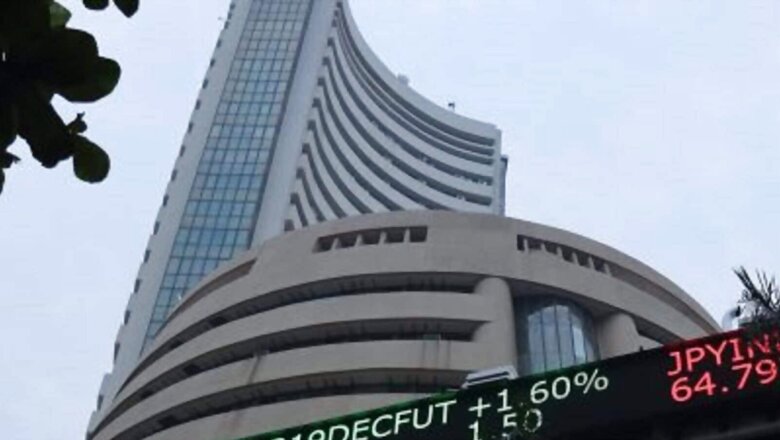
views
India’s benchmark 10-year government securities rose to a three-year high of 7.278 per cent on Wednesday, after the official data showed that the retail inflation in March stood at a 17-month high of 6.95 per cent. This has affected the equity market also. Here’s what are bonds and how they can affect equity investors:
What Are Bonds And Their Yields?
A bond is a fixed income instrument that represents a loan made by an investor to a borrower (typically corporate or governmental). Bonds are used by companies, municipalities, states, and sovereign governments to finance projects and operations. Owners of bonds are debtholders, or creditors, of the issuer, according to Investopedia. In India, 10-year government securities (G-Sec) is the benchmark bond and its yield has increased to record 7.21 per cent on Wednesday.
Yields are the returns on bonds. For example, if a person buys a bond at Rs 5,000 at a coupon rate (or fixed interest rate) of 5 per cent per annum, he or she will get a return of Rs 250 a year. If the price of bonds falls due to any reason to Rs 4,000, the returns will become higher in percentage terms, given the same coupon rate and time period. So, bond prices and yields move in opposite directions. When bond prices go down, yields rises and vice-versa.
Why Do Bond Prices Fall?
Bond prices fall when there are expectations and signs of improvements in the economy or if inflation is rising. In a benign growth environment, investors usually sell bonds and move towards equity, and subsequently, their prices fall and yields rise. However, even if the growth environment is not that benign in a country but inflation is high, bond yields may rise. This is what is happening right now. This situation negatively affects the equity markets also as high bond yields make the cost of debt higher for companies, thus affecting their valuation.
On Tuesday, official data showed that the country’s retail inflation rose to a 17-month high of 6.95 per cent. This may prompt the Reserve Bank of India to go for an interest rate hike as soon as June to absorb liquidity from the system. In the US also, inflation is hovering at record high levels.
What Should Investors Do?
An analyst said investors should be cautious about interest-rate-sensitive stocks. It comprises financial sector shares, including banks. Mehta Equities Director Sharad Chandra Shukla said, “A sharp increase in interest rates impacts corporate profitability and, in turn, markets.” He added that interest rate-sensitive sectors where the leverage is high are impacted more.
Shukla added that hardening of 50-100 basis points in the bond yields is expected till the end of this year. “The asset allocation is the key. The asset class mix in an investor portfolio depends upon the expected rate of return and the risk associated with the asset class.”
A trader, who did not want to be named, said retail investors should wait for a few days to watch the movements of bond yields and equity markets.
Geojit Financial Services Head (Research) Vinod Nair said, “Hyperinflation and the risk of elevated policy rate hike placed the global market on its toes impacting the performance of equities with rise in yield.”
On Wednesday, the BSE benchmark Sensex fell by 237.44 points to close at 58,338.93.
Read all the Latest Business News and Breaking News here



















Comments
0 comment